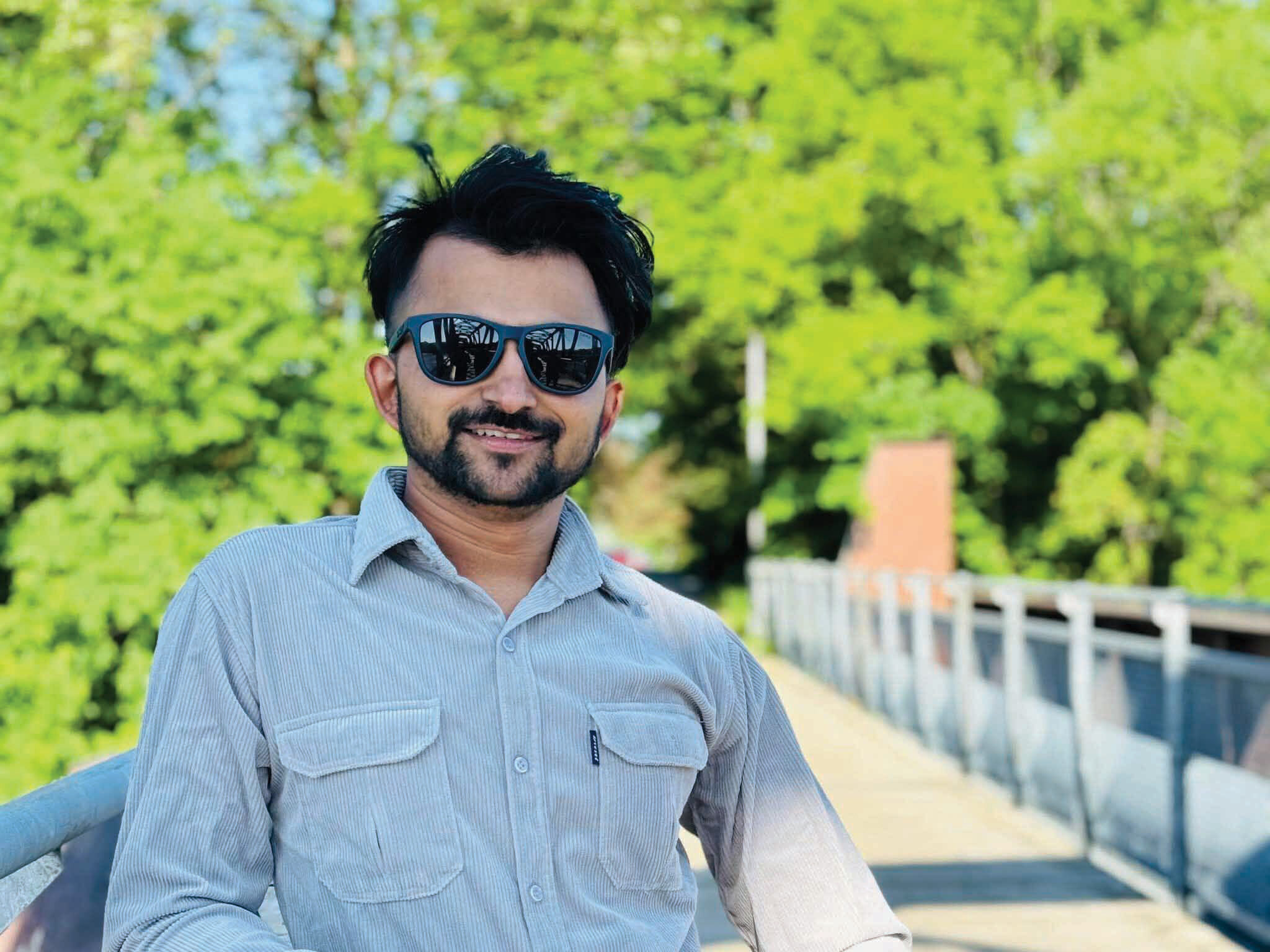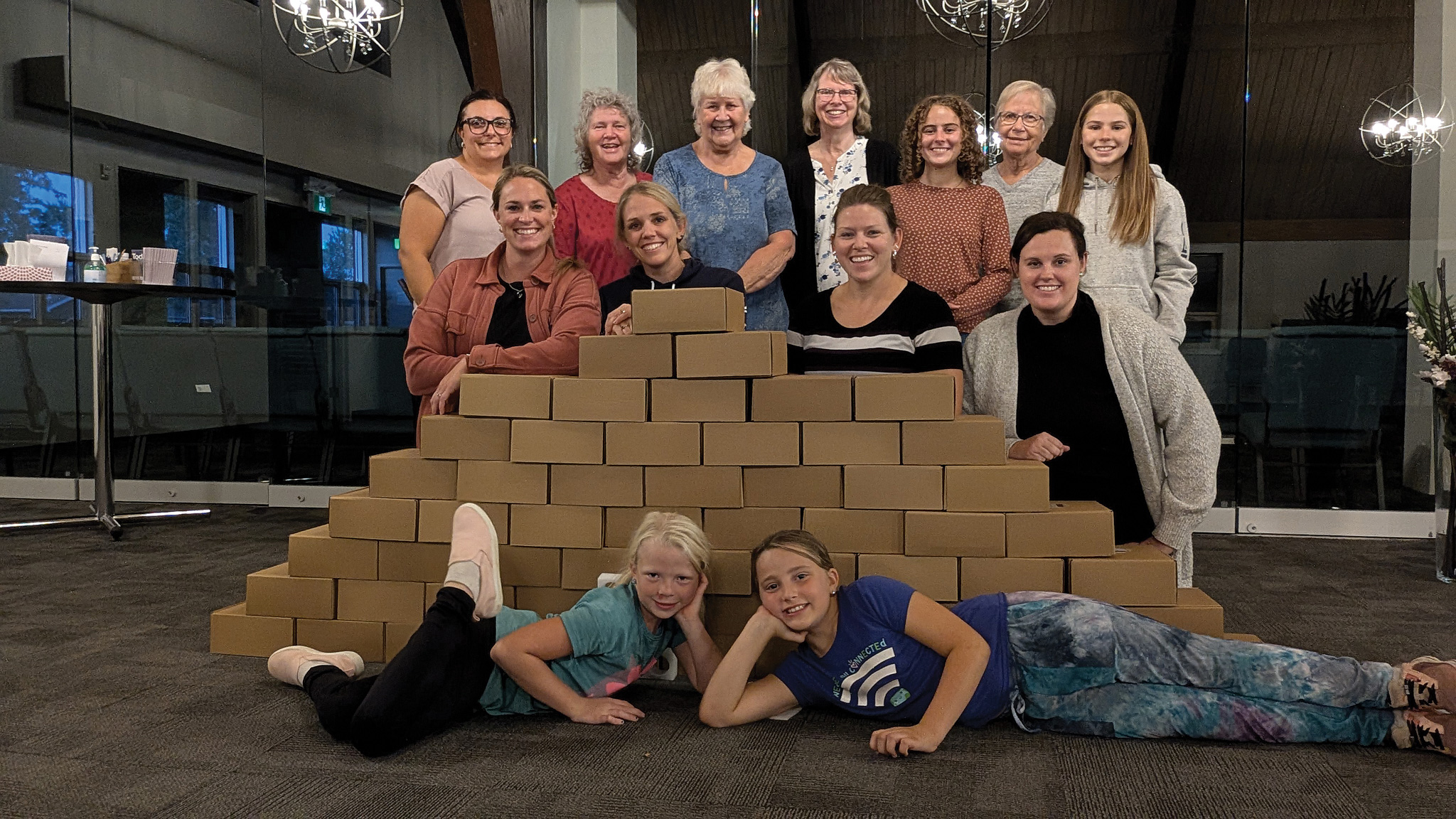HALDIMAND — New Year’s resolutions are typically about as reliable as the estimated arrival time of your cable service technician’s scheduled visit. Every year, millions of people make them and nearly as many break them in the weeks or months to come.
But what if you could hold onto that resolution all year long? The Press spoke to some local experts for their tips and techniques to help achieve long-term success with your resolutions, whatever they may be.

Christine Szymezko, crisis clinician with South Coast Wellness, shared some suggestions on how to keep yourself focused on your goals throughout the year while making sure to protect and nurture your own mental health at the same time.
“I think the important thing is really looking at what kind of goals you’re setting. Oftentimes, it’s a new year, a fresh start, and we often set goals that are really lofty. Often that’s what leads to the demise of the goal,” she said.
Instead of saying ‘I want to get out more and make friends’, Szymezko suggested, ‘I’m going to go to the resource centre once a week.’
“That’s a lot more specific. When it’s more specific, I can sort of plan out how I’m going to do that. Then, I can look at what might get in the way,” she explained. “I think a lot of the success lies in the setting of the goals and really being specific and thinking it out ahead of time, and also thinking about what we might encounter or run into. That makes it a lot more likely we’ll succeed.”
Szymezko said many of her clients deal with extreme loneliness; something that can seem insurmountable from the offset when trying to find ways to break out and meet people. For others, physical fitness, or improving on budgeting skills might be the goal, but the drive behind those goals is often similar.
“It’s really important that you have a ‘why.’ Why are you doing this? Why are you getting out more? Why are you trying to lose weight? I think when you run into pitfalls, if you can look back and remember your ‘why,’ there’s a good chance you’ll keep going,” Szymezko said.
Goals and resolutions are never a straight shot to the top, and Szymezko advised people to give themselves grace while trying to improve.
“Be kind to yourself, recognize that it’s one step at a time,” she said. “Oftentimes, something goes wrong, and we just give up on it … just take a step back and figure out what you can learn from this.”
She added, “Whatever you’re trying to change or give up likely didn’t come up overnight, and it’s not going to change overnight. It was those steps at a time, those challenges and struggles. At the end of the day, that’s what makes it all worth it.”
One of the most popular (and failed) resolutions every year centers around an improved diet.
Public Health Dietitian Laura Goyette with Grand Erie Public Health said, “If you have goals related to diet or health, consider health promoting behaviours, such as sleep, diet, physical activity, alcohol consumption, stress, social relationships etc. and choose one area to focus on first.”
She advocated for adopting the SMART goal approach to resolution setting: specific, measurable, achievable, relevant, and time bound.
“SMART goals break down your objective into more manageable parts, making your goal easier to achieve,” said Goyette.
“What is achievable for one person may not be achievable for another. For example, if you currently do not eat any vegetables, setting a goal of eating five servings per day may not be realistic. Instead, try starting with the goal of eating one green vegetable per day.”
From there, she said you can start to tweak those goals as you become used to them, advising, “allow yourself to feel proud of what you’ve already accomplished.”
Some achievable diet-related goals shared by Goyette include:
- Drinking more water
- Increasing the number of hours you sleep per night
- Making half your plate fruits or vegetables at a meal
- Decreasing your consumption of alcohol
- Cooking/eating at home one more night per week than you do currently
- Going meatless at least once a week
“It is also important to ditch the all or nothing approach to health, which isn’t a supportive mindset for people looking to make a change,” said Goyette. “Humans are not perfect, life can throw you curveballs, and not everyone has the same 24 hours in the day. When we come at life with an all or nothing approach, it’s easier to throw in the towel on our goals because we didn’t do them perfectly. Instead, think of progress over perfection. Ten minutes of physical activity, one serving of vegetables and six hours of sleep are all better than nothing, and tomorrow is another day to try again. It doesn’t have to be January 1st to make improvements to your health.”
She reminded readers that registered dietitians can be accessed freely through Health811, by simply dialling 8-1-1, or using their chat function on their website.
Goyette called food “so much more than just nourishment. It can be a part of our culture, our social connections and bring us so much enjoyment. Part of having a healthy relationship with food is being able to participate in life without food causing undue stress … if you restrict something in your diet you are probably going to want that food even more … Cake on birthdays and ice cream cones in the summer can be fun, enjoyable activities that have room in a healthy lifestyle.”
She said the best way to meet nutrition goals is through eating regular, balanced meals containing carbohydrates, fats, and protein.
“This combination gives us energy and leaves us feeling satisfied and fuller for longer,” she said.
She sang the virtues of adding more fibre to your diet, promoting bowel regularity and keeping cholesterol in check, suggesting fruits and vegetables, nuts, seeds, legumes, and whole grain foods as good sources.
Also, protein is essential in keeping blood sugar levels where they should be. A healthy amount of beans, lentils, nuts, seeds, meat and poultry, fish, shellfish, eggs, and some dairy products will do the job.
Lastly, Goyette targeted stress management, which she called an important factor in a person’s desire to eat.
“Your diet might not always be your top priority, but practising healthy habits regularly will help you keep a good foundation to get through the waves of life.”
Paul Staats, personal trainer with Pro-Fit Health Club, also advocated for using the SMART system to approach fitness resolutions in the new year.
“When people make New Year’s resolutions about fitness goals, they should clearly identify what exactly they are trying to accomplish,” said Staats, listing weight loss, building muscle or strength, and improving cardiovascular training as specific fitness goals a person might set.
He said measuring progress is essential in working towards a successful goal, and advised for making sure fitness goals are realistic and within a person’s capabilities.
“This measure will ensure that fitness goals are enjoyable, safe, and productive.”
Finding a personal trainer to help set and measure goal setting can be a great tool for a newcomer to the fitness lifestyle, Staats said, noting how the expense adds to a sense of accountability in reaching goals.
He said that booking an orientation session at a gym before committing is a good way to get to know what type of equipment and environment the location offers.
“The more comfortable a person is with the equipment the more confidence they will have in using the equipment and they will have less anxiety with being in a gym environment.”
Another essential element of a healthy fitness lifestyle is exercise recovery.
“Everyone, particularly people who are new to a fitness lifestyle, will experience muscle soreness,” said Staats. “However, there is a difference between a healthy soreness and an aggressive overtraining schedule, which can lead to negative effects on multiple body systems, such as fatigue, a decline in performance, risk of injury, and burnout.”
Whatever your goals for the new year might be, The Press wishes you success, happiness, and improvement in 2025.





